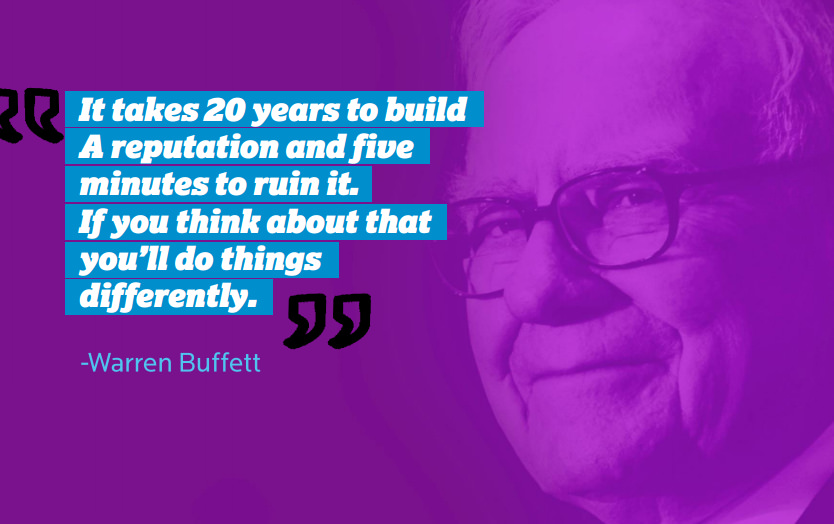 New ideas are thrilling. So many of us are great at starting things; the genesis of an idea, the moment the lightning strikes, that flash of inspiration is pure joy. Taking your first steps into a start-up business are some of the most exciting steps. You are moving at break-neck speed to set up your platform for success.
New ideas are thrilling. So many of us are great at starting things; the genesis of an idea, the moment the lightning strikes, that flash of inspiration is pure joy. Taking your first steps into a start-up business are some of the most exciting steps. You are moving at break-neck speed to set up your platform for success.
But, as with all the greatest success stories, eventually, a wall is hit. Nothing worth having ever comes easy, and when it comes to start-up businesses, that struggle often comes in the form of early stagnation. The vision is in your head, the picture of the palace you are going to build is set firmly in your mind’s eye; now you have to go through the potential mundanity of building it brick by brick.
The unfortunate fact is, the majority of new businesses fail within their first year of trading. These failed start-ups are usually victims of common mistakes and misconceptions. Here we have some tips on how to ensure that your early-stage company becomes the success it deserves to be.
Track Your Metrics
On the face of it, this seems like an obvious thing to mention. However, new businesses, especially when low on cashflow, tend to focus mainly on profits and revenue. These are hugely important of course, but there are other data that you should be paying close attention to in order to get a rounded view of performance. Keeping an eye on the following will also ensure that you catch potential pitfalls before they happen…
Customer Acquisition Cost: How much does each new customer cost you? This can be easily assessed by dividing your total marketing and sales costs by the number of customers you have had within a specified time period. How do those figures look against your projections and business plan?
Customer Retention: Retained customers are vital for reputation and cashflow. How good are you at retaining business? Is there anything you could be doing to improve customer experience?
Return on Advertising Spending: Is the revenue you gain as a direct result of advertising sufficient for your investment? Advertising is not cheap and is always a gamble. Divide total sales by advertising spend in order to see what kind of return this investment generates.
Profit Margin: Profit is everything in the end. You must keep a very close eye on the bottom line.
Traction and Momentum
Getting things moving is widely regarded as one of the hardest things to do; getting noticed, getting talked about and getting a great reputation out there. It is a grind, but you have to keep the faith; keep pushing forward. You might have to take it one customer at a time, but, as Mother Teresa once said, “the ocean is made up of drops.” Keep pedalling and the breakthrough will come.
Momentum and passion are tough things to keep hold of on your own. Make sure you have other people around you who are happy for you to bounce ideas off them, and who will inspire fresh ideas and enthusiasm. When you are grafting away on your own, it is vital to have input from people who understand the difficulties of the process.
Delegation
As your business develops, so will your workload. You need to recognise when this workload is too much for you on your own. There is no use in running yourself into the ground before your venture has even left it! To avoid this, take a look at the workings of your business and break them down into separate roles. This could be delegated to interns, or even employees if you are in a position to afford them.
Invest Effort in Talent
When a fresh venture is your baby it is really hard to take parts of it out of your hands and into the hands of others. But this transition must be made in good time. It is essential to invest real time and planning into hiring the right people. Do not wait until it is too late and get into a situation where you have to hire fast; this way you will most likely end up with employees that are the wrong fit for your company. Make hiring the right talent a priority well ahead of when they are required so that you can put the focus, but not stress, into the task.
Under Promise and Over Deliver
This is a good rule of business in general. This rule not only helps you to gain a great reputation but also takes a little pressure off. An example of this is always promising a later completion date on some work than you intend to deliver so that when you do deliver, earlier than quoted, the customer is happy. This also buys you time if the demands of a start-up slow down a project or task for some reason.
Self-Promotion
Don’t work in secret. Many new companies fail because they are too timid, self-deprecating or fear apparent over-confidence in their product or service. With social media being in its heyday, self-promotion is easier than ever, go for it! Also, if you are planning a publicity event or advertising campaign, don’t be afraid to ask for things. Perhaps you can get a free venue for your launch if you promise to promote the venue. The worst thing they can say is ‘no’!
The bottom line is ‘make some noise’. You might have invented the greatest thing known to man, but all you will hear is crickets if the only living thing that knows about it is your cat!
Don’t Overwork Yourself
This is so easy to do. You have to relax a little; tension has never benefitted anyone or anything. We are told from a young age that the harder you work, the bigger and better the results. This just isn’t the case. It is an attitude that will grind away at you over time, extinguishing the flame that once was your initial idea. Many studies over the past decade have proven that sleep, rest and a healthy work/life balance are essential to wellbeing and success. Take breaks, delegate, keep to sensible working hours, eat properly and keep fit.
In conclusion, perhaps the most important thing to do to keep your business on track is to look after yourself first. Keep that positive vision in your head by keeping yourself healthy, happy and inspired.







